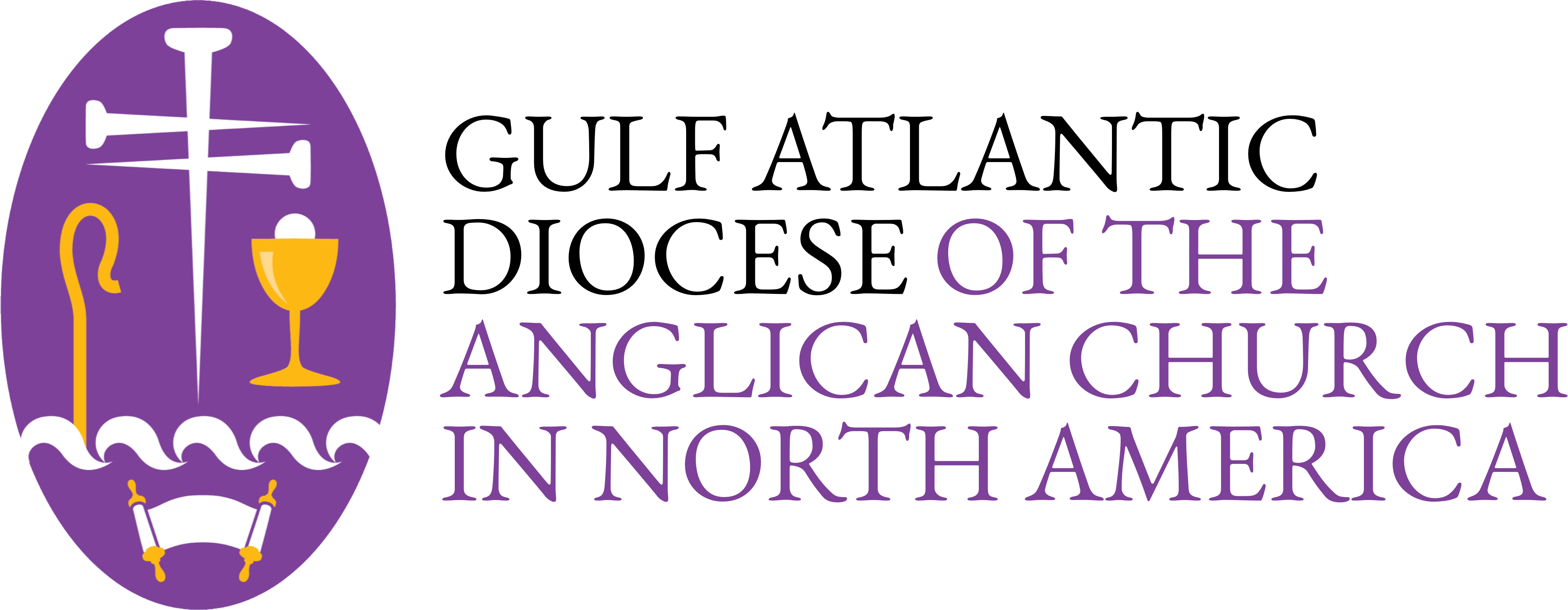
Newsletter Contents
Flourishing Churches are Healthy Communities
Two Of The Most Divisive Words In Church Leadership
Healthy Communities include Intergenerational Relationships
Healthy Community Strengthens our Church Plants
Welcome Bryan Biba, Canon for Leadership!
Other Announcements & Upcoming Events
More from Canon Bill Krizner
Oh That Beloved Eunuch! Evangelistic Mission in Action
The Flourishing Church: Healthy Community
A Pathway to Flourishing
Following the Architect’s Plan
There are two words that seem consistently to bring forth either an energized smile or a dejected, and often frustrated, grimace from church leaders: Small groups. Some of our churches in the Gulf Atlantic Diocese have nearly 80% of their parishioners taking part in life-giving small groups each and every week, while others have tried repeatedly to start such groups only to have them sputter and ultimately fail. Others have chosen not to pursue them at all, citing a belief that they will only serve to weaken the church as a whole. Are small groups truly essential to a flourishing church?
We need look only to Jesus Himself to answer such a question. Throughout His earthly ministry, Jesus exemplified the profound impact of small, intentional communities. While Jesus offered insight into the Kingdom of God in marvelous ways through the teaching that He offered before large crowds, He also chose to invest deeply in a small group of twelve disciples. Through His time with them, He was able to demonstrate what true community, discipleship, and leadership development look like.

One of the most defining characteristics of Jesus’ ministry with His disciples was its relational nature. Unlike a lecture-based teaching style, Jesus’ approach was immersive. He didn’t just teach His disciples from a distance; He lived alongside them, sharing life in its highs and lows. Whether in moments of celebration, like the wedding at Cana, or times of deep sorrow, like in Gethsemane, Jesus’ disciples were always by His side, learning not only through His words but also through His actions.
When pursued with intentionality, relationship-centered small groups offer a space where followers can learn from one another, encourage each other, and hold one another accountable—much like Jesus did with the disciples.
For the modern church, Christ’s model teaches us that (1) small groups matter, but (2) they should always be centered in relationship. Discipleship isn’t just about knowledge transfer; it’s about walking alongside each other, sharing life, and growing in Christ together. When pursued with intentionality, relationship-centered small groups offer a space where followers can learn from one another, encourage each other, and hold one another accountable—much like Jesus did with the disciples.

Indeed, the Gulf Atlantic Diocese firmly believes that Healthy Community, one of our 6 established flourishing marks, should be rooted and strengthened by a strong small group ministry within each of our churches. While each ministry should of course be appropriate to its own unique context, there are certain key elements, each permeated within the love of Christ, that should always be included:
Organic and Open
Flourishing small groups often succeed when meeting at an intimate location away from the church itself. While this approach usually relies upon a family or two to open their homes on a regular basis, the more casual setting lends itself to a more approachable path of discipleship within the Christian life. Moreover, looking to different members to host, bring food, and coordinate a sitter for the kids is not just about a division of labor bout allows people to step into service and a kind of leadership. Such a group allows for a more organic approach to walking with the Lord together, and they also tend to be more inviting to church visitors (and especially those neighbors, coworkers, and friends that are still exploring the Faith).
I experienced this type of a flourishing small group through a ministry we affectionally referred to as Shared Life about twenty years ago, back when Kristen and I had young children. We had four groups that met in homes, each serving potluck-style meals where everyone brought some part of the dinner each week. We pursued simple Bible study and prayer, and shared the struggles we were facing in our marriages and as parents (more about the importance of each below). We also intentionally left space in each group for at least four new people from outside of the church to join us. By praying for such “empty chairs” each week, the Lord faithfully and regularly brought new couples to know Him through these special small group communities.

Approachable, Conversational, and Applicable Bible Study
We must constantly be wary of such gatherings becoming glorified social clubs rather than thriving discipleship hubs.
Any church seeking to launch or steward small groups must constantly be wary of such gatherings becoming glorified social clubs rather than thriving discipleship hubs. Every small group should always be centered in regular Scripture reading and contemplation. However, in my experience, flourishing small groups should not rely upon a lecture-style approach. In other words, while solid and orthodox Bible classroom type teaching is indeed important in every church, it is not an ideal approach within small groups. Instead, the Bible-study portion of the meeting should be approachable, so that those who are new to church or who are only beginning to explore the Faith may participate in conversation surrounding the passage. Moreover, through such conversation, members are then able to then apply practically what they have learned to their own lives.
One of the best approaches to this type of Bible study is known as the “inductive” style reading of Scripture. This method encourages a deep, personal exploration of the Bible. It involves three main steps:
- Observation (noticing details in the text)
- Interpretation (understanding the meaning behind those details)
- Application (determining how the message applies to life today)
Through careful examination and reflection, each of the members of the small group, including those that are exploring our Faith, can gain insight and understanding of God’s word and its relevance to their lives. Many of our small groups throughout the Diocese are using this approach and repeatedly share how it has brought forth strengthened discipleship amongst their members.

Laughter, Sharing, and Mission
By laughing and crying together, we find the healing and strengthening power of the Lord.
While flourishing small groups always remain centered in Scripture and prayer, they also bring forth a time of sharing together in the goodness of the Lord. Each meeting should carve out intentional time for each member of the group to share about their lives and offer others to pour encouragement and Biblical truth into times of celebration and times of heartache. By laughing and crying together, we find the healing and strengthening power of the Lord through Christ-centered community. Most such groups also choose to join God on mission within the local community, with a growing number opting to invest in regular third-space ministry. This evangelism-centered effort involves spending time with a particular group of people—some of them unchurched—beyond those in your home and workplace (or school). Groups may choose to meet people who work and frequent a local coffeeshop or work volunteering together with a local youth club as example.
I had the blessing of hearing about a new small group, formed and led in recent months by a newly-widowed woman in our diocese. As part of her season of mourning, she felt the Lord prompting her to start a new group for other local widows, including women from inside and outside the church. They meet every Friday night at a different restaurant to enjoy a special and intimate time of fellowship. The women do not order until they have first gone around the entire table and shared one moment with God that they personally experienced in the past week. As you might imagine, this quickly brings forth both tears and laughter. They spend time in prayer and soon plan to pursue a simple Bible reading with dinner each week.
In closing, we believe that each of our Gulf Atlantic Diocese churches should be pursuing active and flourishing small groups. We are seeing a real movement of the Lord within this particular area and would love to be able to support you in such work. It does not matter where your church is in the process: whether you just want help strengthening your existing ministry or if you need to reconsider your approach altogether. Let us know about your needs so that we can connect you to some of our amazing small group leaders from around the Diocese to support you. Jesus reminds us all “for where two or three are gathered in my name, there am I among them” (Matthew 18:20).
